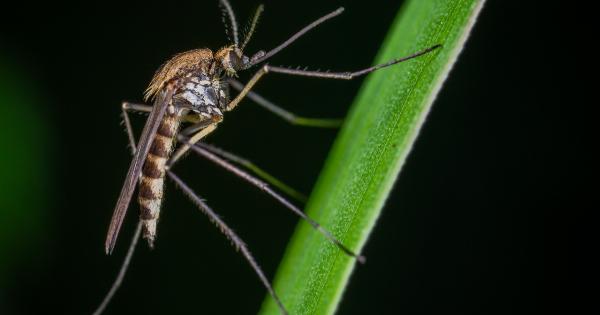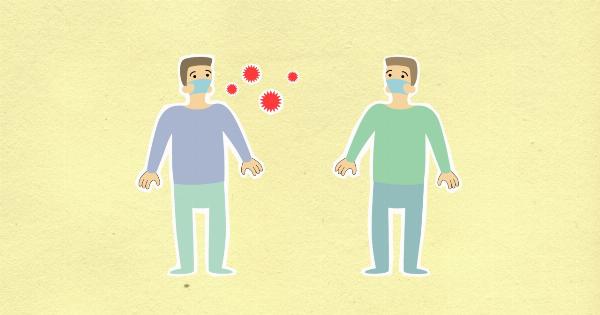The World Health Organization (WHO) recently held an emergency meeting to address the growing concerns surrounding the Zika virus.
This meeting brought together experts from around the world to discuss the current state of the virus, its implications for public health, and the necessary measures to combat its spread.
The Zika Virus
Zika virus is a mosquito-borne disease that was first discovered in the Zika forest in Uganda in 1947. It is primarily transmitted by the Aedes mosquito, which is also responsible for the transmission of other diseases such as dengue and chikungunya.
The virus spread across various parts of Africa and Asia for many years before gaining global attention in 2015 when an outbreak occurred in Brazil.
Global Spread and Concerns
The Zika virus has quickly spread to more than 86 countries and territories, with the largest impact being felt in Latin America and the Caribbean.
The rapid spread of the virus is largely due to the movement of infected individuals and the presence of favorable conditions for mosquito breeding, such as stagnant water and inadequate sanitation.
One of the major concerns surrounding Zika virus is its link to microcephaly in newborn babies. Microcephaly is a condition characterized by abnormally small head size and potential neurological defects.
Studies have shown a strong association between the Zika virus infection during pregnancy and an increased risk of microcephaly in infants.
Aside from microcephaly, Zika virus infection has also been associated with other neurological complications such as Guillain-Barré syndrome, which leads to muscle weakness and paralysis.
The potential long-term effects of the virus on individuals and communities have raised serious concerns among health professionals and policymakers.
Emergency Meeting by WHO
In response to the growing public health crisis, the World Health Organization convened an emergency meeting to discuss the Zika virus.
The meeting aimed to assess the current situation, share latest research findings, and develop strategies to combat the spread of the virus.
The meeting brought together experts in virology, epidemiology, public health, and related fields from around the world.
Representatives from affected countries also attended to provide insights into the local situation, challenges faced, and initiatives taken to control the spread of the virus.
Key Discussions and Outcomes
During the emergency meeting, several key discussions and outcomes were reached:.
1. Enhanced Surveillance and Reporting
The importance of robust surveillance systems to track the spread of the virus and monitor its impact was emphasized. Member countries were called upon to strengthen their surveillance efforts and promptly report any suspected cases.
This would enable a better understanding of the virus’s epidemiology and facilitate targeted interventions.
2. Vector Control Strategies
Controlling the Aedes mosquito population is crucial in limiting the transmission of the Zika virus.
The meeting emphasized the need for effective vector control measures, such as eliminating breeding sites, using insecticides, and implementing community-based initiatives to raise awareness about mosquito control.
3. Research and Development
There was a consensus on the urgent need for accelerated research and development efforts to better understand the Zika virus and develop diagnostics, treatments, and vaccines.
Collaborative research initiatives were encouraged to expedite progress and ensure equitable access to interventions.
4. Public Awareness and Education
Robust public awareness campaigns were deemed essential to educate communities about the Zika virus, its modes of transmission, preventive measures, and available healthcare services.
Information should be disseminated through various channels, including social media, community engagement, and healthcare facilities.
5. International Cooperation
The emergency meeting accentuated the importance of international cooperation and collaboration in addressing the Zika virus.
WHO and other relevant organizations were tasked with facilitating partnerships, sharing knowledge, and providing technical assistance to affected countries to strengthen their response capacities.
Commitment to Action
The emergency meeting concluded with a clear commitment from all participants to take immediate and coordinated actions to combat the Zika virus.
Member countries pledged to implement the recommendations made during the meeting and provide necessary resources to support their implementation.
It was recognized that a sustained multi-sectoral approach involving health, environment, education, and community engagement is vital to effectively tackle the Zika virus and mitigate its impact.
Conclusion
The emergency WHO meeting addressing Zika virus concerns served as a platform for experts and policymakers to come together and strategize the global response to this public health crisis.
The discussions and outcomes of the meeting highlighted the urgent need for a comprehensive approach that includes surveillance, vector control, research, public awareness, and international cooperation.
While significant progress has been made since the outbreak, continuous efforts are required to combat the Zika virus and safeguard the health of affected populations.
It is crucial that governments, healthcare agencies, and international organizations remain vigilant and committed to preventing the spread of Zika virus and minimizing its impact on individuals and communities.































